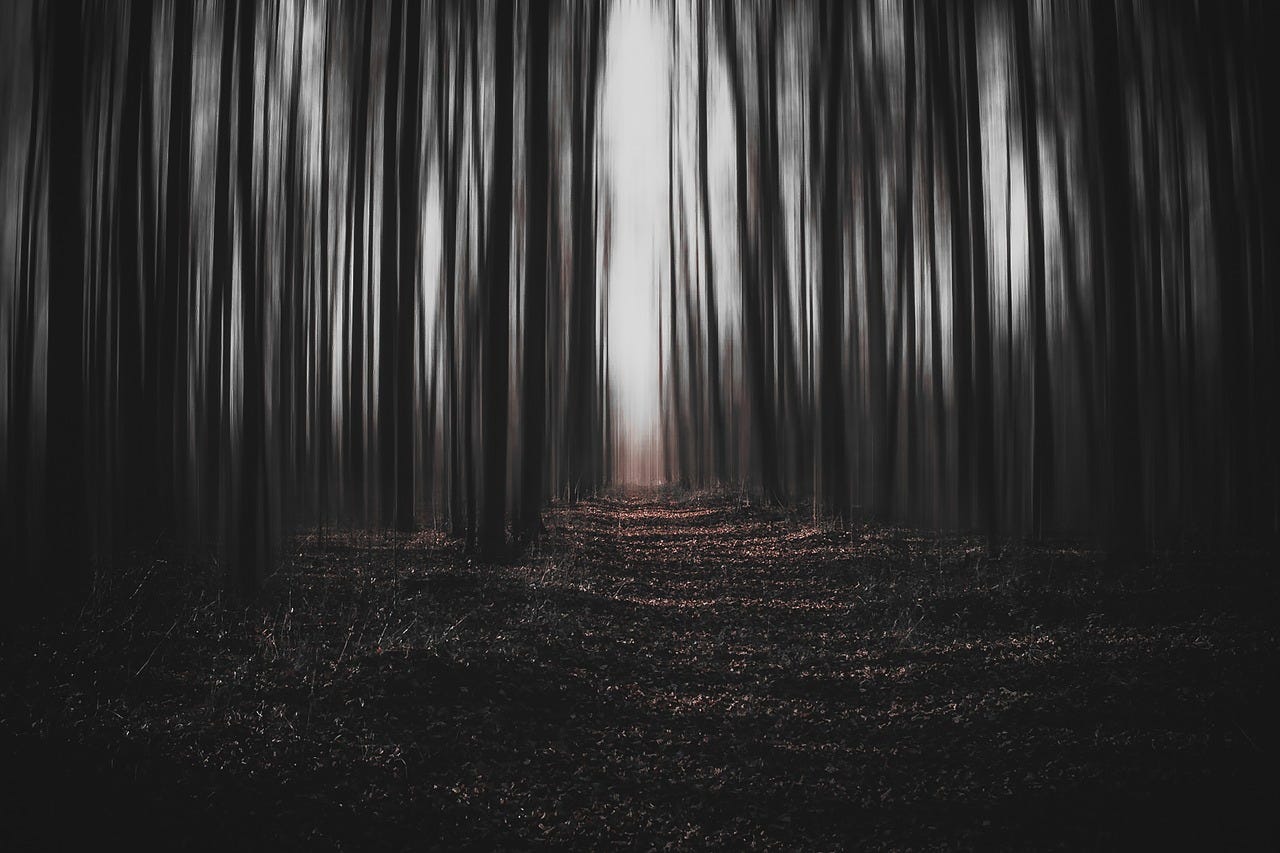This is the message I’d love you to take into 2025.
You have full permission to change how you are perceived—personally and professionally.
I’m not saying you can change how people think about you. That’s beyond your sphere of influence. I’m advocating doing what you can change, what you can control—which is how much of yourself you choose to show the world.
Let me share what happened to my friend Kate (full disclosure: I obtained her full permission to share her story here). She’s a high-achieving university academic with a leadership role that carries a weighty admin and management workload. A few years ago, she reported being pulled in too many different directions. In addition to her full-on job, she was writing a novel in her spare time—a fact she kept secret from her work colleagues.
When we met on a midwinter day for our seasonal gingerbread latte, Kate sat across from me with literal tears in her eyes. She was feeling fragmented and overwhelmed. I was curious. Why, I asked, was she keeping her novel writing a secret when it was such a fundamental aspect of her creativity and expression?
‘It’s too exposing,’ she said. ‘At work, I’ve got a reputation for being efficient and successful. If I fail at writing … then what? People will think differently about me and I won’t match up to their expectations.’
Resisting the urge to challenge Kate on her definition of ‘failure’ (something to explore another time, for sure), I asked what she’d done to address the fragmentation.
She checked off each finger as she reeled off the books she’d read and time management systems she’d tried to implement. She’d had portfolio career design coaching at work to help her manage the transitions between different areas of her job. All to no avail. It didn’t help her relationship to her writing.
It made me think how often we conceal these alive and vital parts of ourselves. I’ve done this myself, probably many times, over the years.
And it made me wonder why.
It isn’t about time management or systems: it’s about being.
Certainly, when we hold back our full self and self-expression, it’s sometimes down to fear of judgement. But there’s usually more going on. We keep ourselves small by attaching to specific, even narrow, elements of our identity—all because we’re afraid it will disrupt our place in our social group.
It’s a fear that is often unfounded.

In fact, we still possess the brains of stone age humans. Our reptilian brains—the parts of our mind that were designed, from early in our human evolution, to keep us safe—work in the same way today. As Martha Beck writes in Steering by Starlight:
The entire purpose of your reptilian brain is to continuously broadcast survival fears—alarm reactions that keep animals alive in the wild. These fears fall into two categories: lack and attack. On one hand, our reptilian brains are convinced that we lack everything we need: we don’t have enough love, time, money, everything. On the other hand, something terrible is about to happen … our imaginations can fixate on catastrophes that are so vague and hard to ward off that they fill us with anxiety that has no clear action implication.
Our fundamental fear of not showing up fully as ourselves is that we’ll be ejected from the tribe.
So, we close down our potential and possibility. We respond to the world as we’ve always done—through fear of ‘rocking the boat’, or coming across as too weird or inconsistent.
We become that person at work who responds immediately to emails. Or the friend in the group that always organises the social gatherings.
Because it’s expected of us. Because we invest in being seen a certain way—the way that (we think) will bring us approval and guarantee belonging.
Because it’s too scary to think otherwise.
Part of what I do with clients is to identify fears such as these: to work out how those fears prevent us being fully who we are. Then, over time and through a process of inquiry, we uncover what constitutes that person’s Essence—that is, those luminous aspects that make that person shine. We’re mining the fundamental expression of their unique way of being in the world.
We can’t make these vital shifts of identity by focusing on ‘top down’ solutions (through systems, processes or by reading books). We need to get below the surface and work out who the person is, what holds them back and how they can harness their specific Essence to be more of who they are—so they live a life with more impact.
Part of my friend Kate’s essence is ‘integrity.’ I challenged her about not sharing fully her identity as a writer with her colleagues. What opportunities might open up, I asked her, if she risked sharing her creativity more widely? Who might she be if she acknowledged her writing process? And what would it feel like if she fully embraced integrity in relation to her creativity and didn’t hide it?
[Sidenote: Okay, she kind of got a coaching session for free. But she didn’t mind, and neither did I! – I made sure she knew we’d shifted into ‘coaching mode’ from regular chatting.]
‘Honestly, it would be a relief,’ Kate said, stirring the foam on her latte. ‘I mean you know how much I value transparency and openness. But I hadn’t thought about how—well, by keeping my writing secret, that’s a massive contradiction, isn’t it?’
Fast forward a year later: same window seat in the same café, same gingerbread lattes. This time, Kate sits across from me, beaming. Lighter, happier. She’d ‘come out’ at work as a novelist.
It turns out that by digging deeper and considering her creativity as part of her wider identity, she saw the gap she’d been navigating between her ‘social self’ (safe identity within the tribe) and her ‘essential self’ (the real person we have the potential to be).
She spoke about how she was developing a different relationship with work. ‘Turns out my curiosity as a novelist is a superpower in my academic role, too’ she said. We agreed that ‘what if? is a powerful question. It’s used by storytellers but it can be co-opted for any number of work situations too—to promote generative thinking, to solve problems, to reduce conflict.
Most of all, Kate reported a big lack of tension at not having to hold back and hide herself.
It freed up so much energy. She’d stopped compromising herself and started showing up fully in her creative identity. When she brought her creative processes to other parts of her life and work, she experienced more integration.
Leaning in to our differences, revealing and sharing our not-so-visible parts and behaviours means we become more of ourselves, not less than. We act more powerfully, and more in alignment, from a place of expanded identity.
It doesn’t mean we’re compromising our successes and achievements in the areas we’ve worked so hard at.
It means expanding who we already are. This is what’s possible when we stop trying to force creativity to fit into the margins of our professional lives—and instead allow it to become an integrated source of energy and insight that enriches everything we do.
Try this
Do you recognise aspects of yourself you’re hiding from the world?
If that feels familiar, here are some reflective exercises that might help (as a novelist, Kate really loved number #️⃣2!)
Think of a time you wanted to say something out loud but didn't. What did that unexpressed thought feel like in your body? Where did you feel it? What would it have meant about you if you had expressed it?
Imagine your life is the subject of a stage performance. If your current life is the main show, what interesting characters or plot lines are waiting in the wings? What supporting actors want more time in the limelight?
Try setting a timer and responding to these questions in a journal. See what parts of yourself are dormant, and which parts are waiting for permission to emerge.
Work with me
Kate is a friend, not a client, but the principles of our conversation are founded in the coaching work that I do.
In my signature 6-month programme—‘Find Your Creative Essence’—I guide established professionals through this journey of creative integration.
Together, we:
transform self-doubt and fear of judgement into fuel for authentic living and self-expression
look at ways to harness your unique perspective and creativity as a source of professional innovation and growth
build an unshakeable foundation of creative confidence that supports your personal and professional expansion
This isn't about abandoning your professional identity or dismissing your achievements. It's about accessing a deeper level of power and possibility by bringing all of who you are, including your creative Essence, into everything you do.
So, here’s your permission slip.
Allow yourself to imagine what’s possible in your work and life when you have access to your full creative power. What innovations could emerge? What impact might you have?
If you're ready to explore these questions and step into a new level of creative freedom and professional impact, get in touch and book a consultation. Together we'll explore where you are in your journey and whether this way of working is right for you.
The world needs you to show up as your full self and harness your unique creative voice: not someday, but now.
Are you ready to answer that call?
More inspiration on this topic from the Substack community:
’s note: In this post,
adopts a brilliant metaphor (that of a ‘charging pad’) as a way to illuminate how we can get to more integration and integrity. It’s such a visually appealing newsletter too!What’s next?
If there’s something you’re longing to create (a writing project, an artistic creation or new venture) but need more courage and guidance, I’m here to support you expand the power of your self-expression.
Here’s how I can help:
Make an appointment for a virtual coffee (free). I hold 3-4 slots every month so we can get to know each other. Perfect if you’re curious about meeting new people and making connections.
Book a 30-minute connection call (free). This is for anyone—whether you have an idea you want to brainstorm, an issue that’s holding you back, or you just want to know more about my work. Think of it as a microdose of powerful coaching that can help point you in the right direction!
Read my manifesto for creative courage (free). Learn about the core principles I work with in my own creativity and business and follow in serial form the journey of how I came to found Wordplay Coaching.
Inquiry of Writing, an intimate group coaching experience. We meet twice a month—in which we use writing as a tool for curiosity, exploration and transformation. Respond to powerful questions, in discussion and in writing; share your experience; get feedback on what you’ve written. Get the support and connection you need to gain clarity about your life and creativity, and develop your confidence. This is currently full but talk to me about joining the waiting list.
Creative Essence 1:1 coaching. Personal guidance to work with you on recognising your survival mechanisms and the fears that hold you back from expressing yourself fully. Twice-monthly deep dives on Zoom plus individualised support between sessions. This is ideal for you if you’re looking for deep transformation and powerful support to make changes in your life or with a creative project.





